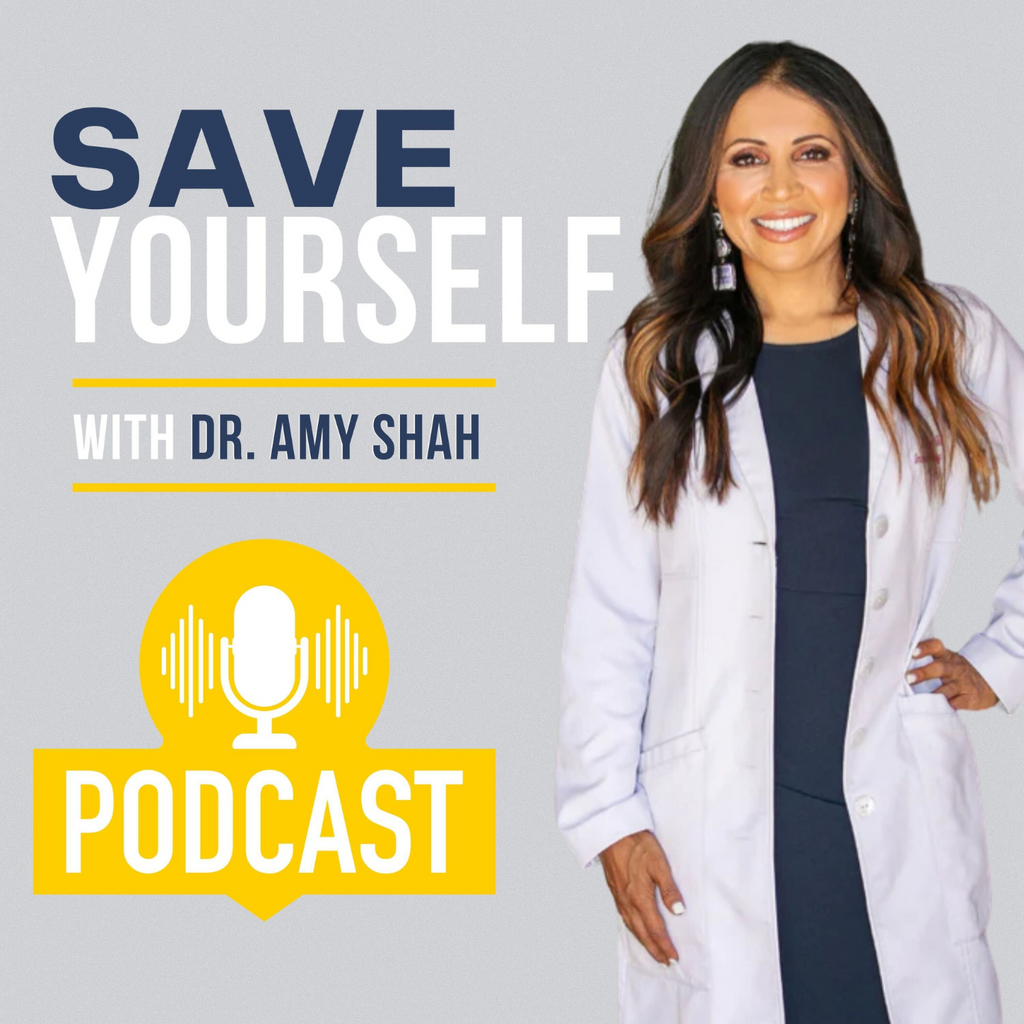I'm Dr. Amy Shah, and this is save yourself with Dr. Amy. No one is coming to save you. You have to get up and save yourself. This is the place where we present the science, the tips, the tricks. My personal clinical experience as a double board certified md and nutritionist on ways that we can learn to save ourselves. Hello there.
It will really, really help, I think, magnesium glycinate, the addition of magnesium in my diet, as well as magnesium glycenate as a supplement in the evenings has transformed my sleep and the way I feel with my hormones. And I think a lot of people can say the same. So that is the number one thing that you can do on day one, is go out, buy some magnesium glycinate if you have to, or just really increase your magnesium in your diet. So you're getting about 550 milligrams a day. Day two, get that sunlight. Vitamin D is almost ubiquitously low in women in perimenopause. This is one of the vitamins that we get from sunlight, we can get from our diet. But most people, especially, for whatever reason, in perimenopause are extremely low.
So day two is get your vitamin D levels checked. If you haven't, supplement with it and get some sunlight. So sunlight on top of the vitamin D benefits has a separate benefit. It resyncs, it retunes the circadian rhythms in your brain and body. We have a master clock in our brain, and we have clocks all over our body in every single organ. And so when we get sunlight or just natural light, it kind of resyncs. So tells the body, okay, it's morning, so it tells the brain, and the brain ends up telling all the peripheral clocks around the body what time it is. And it's really important to have alignment with what time of day it is with your circadian clock, because when you get misaligned circadian rhythms, that's when you get depression, that's when you get injuries.
That's when you get indigestion, because everything in your body works on circadian rhythms. And so you really want to get that natural sunlight. You want to supplement with the vitamin D. You really want to get your levels adequately high enough through sunlight and supplementations, not only for the vitamin D benefits, but also for circadian rhythm benefits. So that's day two, day three, you want to increase your fiber to at least 25 grams a day with a goal of 40 grams a day. Okay? So we know that our microbiome changes in perimenopause, and you have to roll with changes. Not only do 95% of people not getting enough fiber, but it's even more important when you're in perimenopause, because as your estrogen levels go down, this decreases the levels of bacteria in your gut. And so it's even more important than ever to get more fiber so you can keep that bacteria healthy and happy.
So gut bacteria love when you eat fiber, and so you want to increase your fiber. So whereas fiber, blueberries, raspberries, broccoli, any kind of vegetable or fruit. I mean, I'm just naming random ones, but any, literally, apples, cherries, leafy greens, celery, I mean, just name any real food. And that has almost every real food, and it has fiber in it. Foods that are ultra processed, like chips and crackers. And your fast food meals are very low in fiber, almost devoid of fiber. And so part of the reason they're so bad for you is that they actually don't feed the gut bacteria. And your gut bacteria are super hungry or they die off.
But day seven is one of the most important days, actually. It is adding high protein, 30 grams of protein at least meal to your morning. So a high protein breakfast is day seven. You want to have eggs, tofu, black beans, protein powder if you're in a rush, yogurt, cottage cheese. These are all things that are high in protein that can really, really improve your health in so many ways. High protein breakfast is one of the most underrated ways to improve all of the things you're feeling in perimenopause, including your poor gut health, including weight gain, including muscle loss, including cravings and mood swings, et cetera. So that is day seven. All right, so we went through seven days.
I told you seven different things that you can really start doing fundamental things. You want to stack these habits one after the other and really see a big change in your life. I wish that I could tell everyone to do this. Almost everyone I work with, we go through these seven changes, and often it's nuanced. Everybody has a different life. And the way you're going to kind of get your sunlight, the way you're going to fix your sleep, sleep, for some people is not an issue at all. Like, that day is super easy. Getting seven to 9 hours of sleep is easy.
Other people, they really struggle with that one. The piece about getting magnesium seems to be a game changer for so many women. And for others, they don't see much of a difference. So I think that's why it's important to have these seven habits stacked one by one, so you can really see a transformational change in your life and your body. And I hope that you enjoyed this. From my nutrition background, from my medical background, and my personal background, being perimenopausal, I found these tips to be really helpful and actionable, and I hope you do, too. So thanks for listening and watching.

